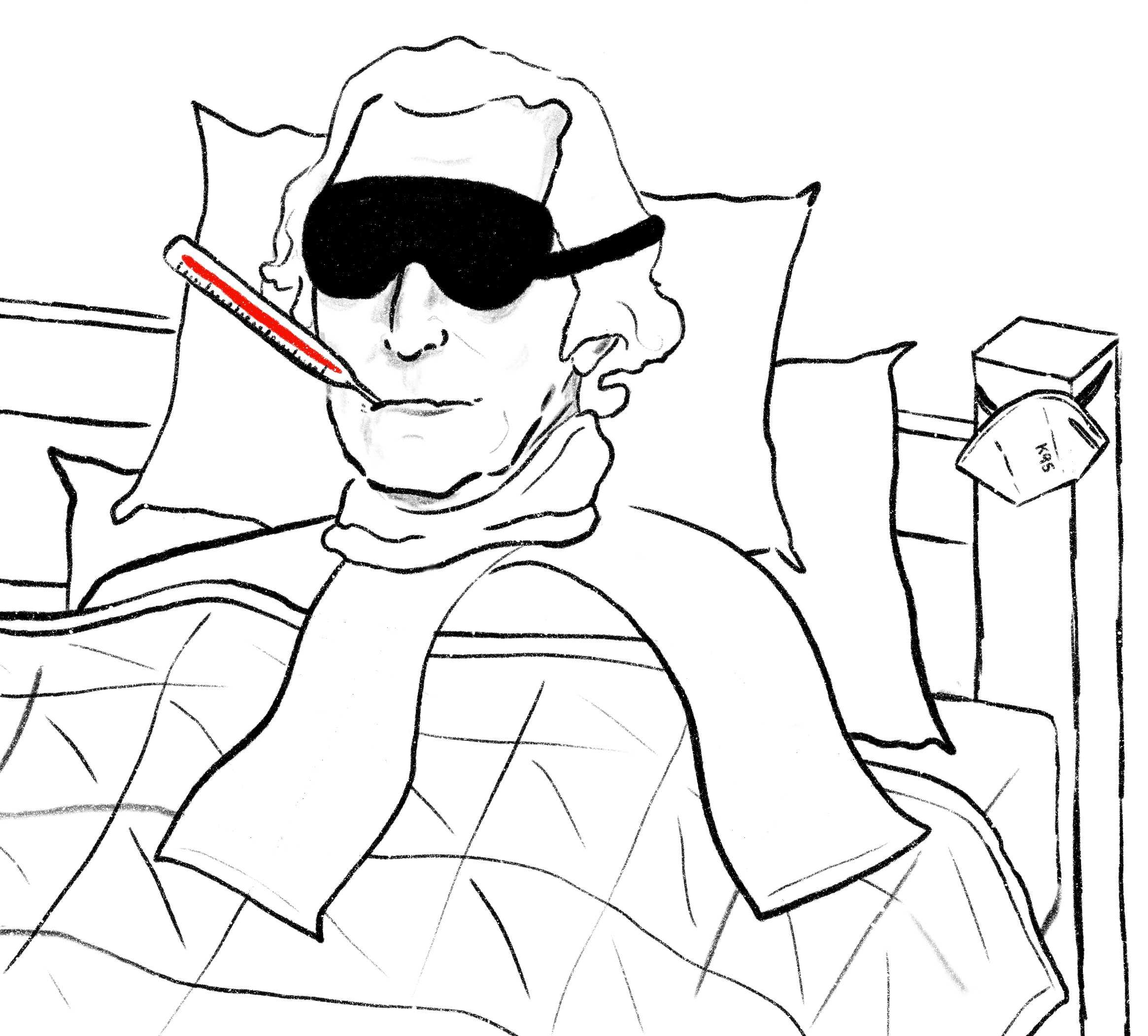From the dark days of the University’s shuttered campus to the full return of in-person learning last semester, GW’s response to the COVID-19 pandemic through isolation housing, testing and masking has shifted over the past two years. But the University’s COVID policy is radically different from where it began. In the absence of official policy, students are riding out the pandemic on couches and spare mattresses while their roommates self-isolate, and immunocompromised students feel neglected on a campus that doesn’t enforce mask wearing or require testing. GW has abdicated its responsibility in favor of an individualistic approach that has left students to navigate a public health crisis on their own.
GW began rolling back its COVID policy this summer, transitioning to voluntary asymptomatic testing in July and instituting an “isolate in place” in August. And in September, officials announced that GW would go mask optional except for in instructional settings, health care facilities and on University transportation. These voluntary, self-contradictory and ill-informed policies have effectively left students without a coordinated plan from officials in charge of charting GW’s pandemic response and protecting their own health.
The University’s decision to put us, willingly or not, in charge of our own health couldn’t be clearer than with the end of isolation housing. Instead of sending students who test positive for COVID to another room in a residence hall or off-campus hotel, GW’s isolation-in-place policy has sent students with sick roommates scrambling to find a place to stay on their own. For those who can’t crash on a peer’s couch or afford to book an expensive hotel room on such short notice, GW recommends they simply stay as far apart from their roommates as possible. And if GW’s isolation guidance amounts to a nonchalant shrug, the reasoning behind the change is even more questionable – the Centers for Disease Control and Prevention data that GW publicly cites covers K-12 educational facilities, not colleges.

Maura Kelly-Yuoh | Staff Cartoonist
The advice GW does offer about masking is just as illogical as its reasoning behind isolation housing. N95 masks are the best way to protect ourselves and others, and yet they’re optional – but strongly recommended. GW’s recent mask optional policy isn’t without precedent, though usually not a successful one. The University lifted its mask mandate in June 2021 for vaccinated individuals but reimposed it a month later. And a similar story played out in April this year – officials ended the mask mandate in all settings except for health care facilities but put it back in place just more than a week later after an increase in cases. What reason is there to believe the University won’t flip-flop again?
And the transition to voluntary testing has made tracking COVID on campus all the more difficult. With fewer asymptomatic individuals testing, we don’t have an accurate picture of GW’s positivity rate – GW’s positivity rate was 0.2 percent compared to a citywide rate of roughly two percent in September 2021. Last month, GW’s positivity rate was nearly 5.5 percent – a nearly 27-fold increase – while D.C.’s positivity jumped by a smaller interval to about six percent.
There’s no doubt that students are split over the University’s guidance, nor is this the first time that a shift in GW’s COVID policies has led to a mix of celebration and consternation among students. But dialing back isolation housing, testing and masking jeopardizes your health and safety regardless of how you feel about these measures.
Granted, both the pandemic and the response to it have cost the University millions of dollars, losses that officials are surely looking to recoup as quickly as possible by winding down isolation housing and testing. Acting as if the pandemic were over or at least in an endemic phase may secure GW’s financial health, but reducing its efforts to track and limit the spread of COVID risks the community’s well-being.
We can’t get through this pandemic alone, but that’s the message students have received from officials this semester – everything is optional, voluntary or recommended. GW went from mustering its institutional strength to confront a life-changing disease at the start of the pandemic to offering mealy mouthed, contradictory and unfounded advice today. The pandemic isn’t over, no matter how much we, or the University’s balance sheet, want it to be.
So continue to wear a mask, test yourself for COVID and make contingency plans if you or your roommate needs to isolate. GW may be washing its hands of the pandemic, but each of us can keep ourselves and those around us healthy.
And even if GW is looking to cut costs, it should support students with the resources and guidance they need to be responsible for their own health – continue to supply voluntary lab testing and KN95 masks until or unless supplies run out. And with officials making their stance on isolation housing clear, haphazard responses and mediated discussions with community coordinators can only go so far. A list of students willing to take in people whose roommates are in isolation or a more formal guide to off-campus housing options would objectively be a better help to students.
At the outset of the pandemic, the University made a difficult decision to keep students safe. Now, it’s taking an easy decision that puts them in danger, letting its COVID response wither under the guise of personal responsibility and financial strain. Inaccurate, unhelpful information and misguided policies are no way to keep students safe – we’ll do our part, just as long as GW does its, too.
The editorial board consists of Hatchet staff members and operates separately from the newsroom. This week’s staff editorial was written by Opinions Editor Ethan Benn and Contributing Opinions Editor Riley Goodfellow, based on discussions with Research Assistant Zachary Bestwick, Sports Editor Nuria Diaz, Copy Editor Jaden DiMauro, Culture Editor Clara Duhon and Contributing Social Media Director Ethan Valliath.


